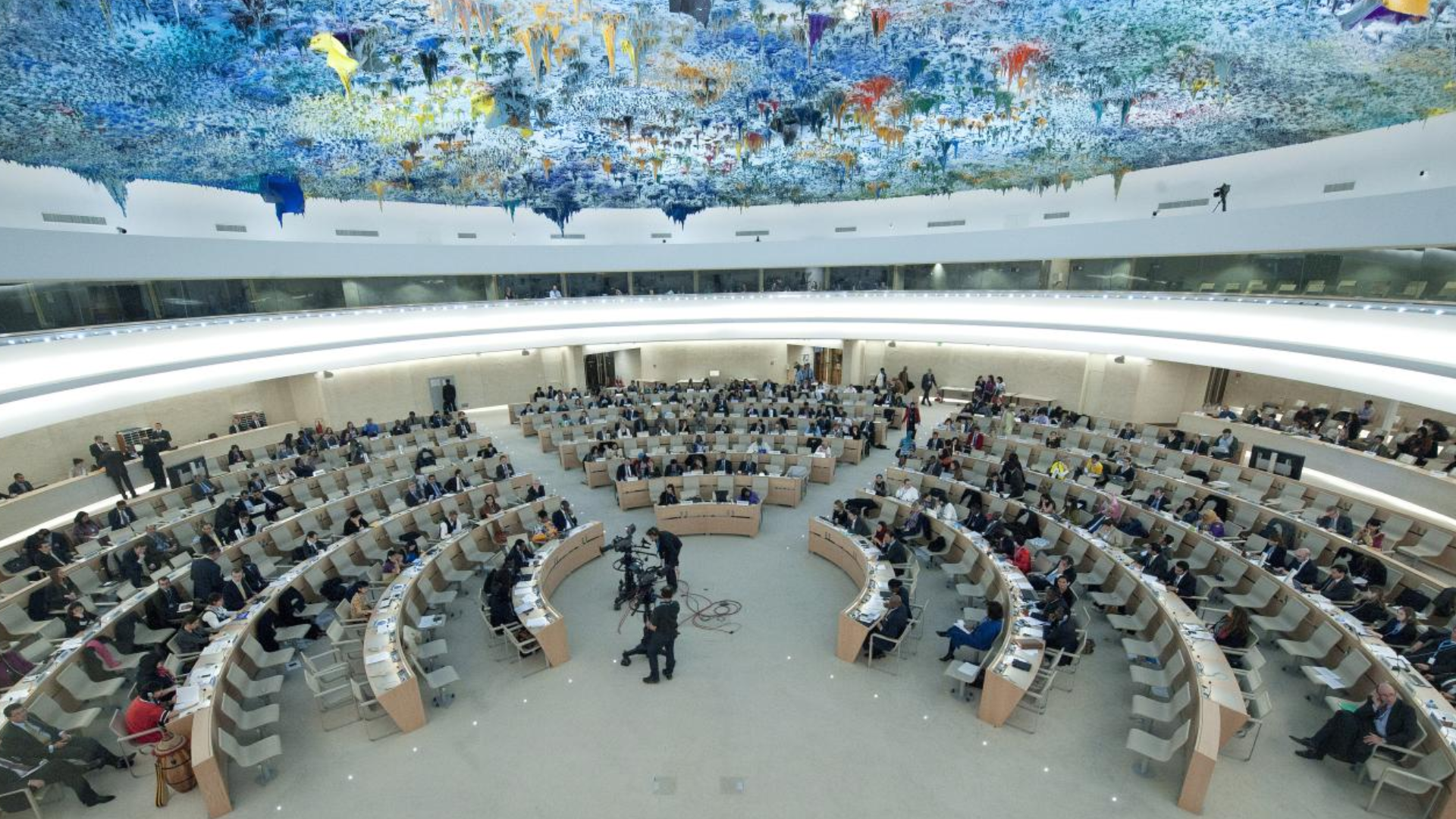8 April 2024
The Asian Forum for Human Rights and Development (FORUM-ASIA), Athan, RW Welfare Society, and Progressive Voice welcome the UN Human Rights Council’s resolution on the human rights situation in Myanmar. While the adoption of the resolution by consensus represents an important step in further cementing the Myanmar military’s lack of legitimacy, the resolution falls short in key areas in addressing the ongoing atrocities and ensuring justice and accountability in Myanmar.
The resolution, adopted by consensus at the end of the 55th regular session of the Human Rights Council (HRC) on 4 April 2024, unequivocally condemns the military junta’s escalating violence against civilians and its increasing violations of international law, committed with blanket impunity. The HRC’s adoption of a new resolution on Myanmar deals a resounding blow to the illegal Myanmar military junta, putting on full display the world’s condemnation of its terror campaign against the people of Myanmar.
It leaves no doubt that the military junta has absolutely no international legitimacy and is the root cause of Myanmar’s intensifying human rights and humanitarian crisis.
The resolution maintains the ongoing crisis in Myanmar high on the Council’s agenda. It ensures that the Council is regularly informed of the developments in the country by the High Commissioner and the Special Rapporteur. In particular, its request that the High Commissioner report on “pathways to fulfil the people of Myanmar’s aspirations for human rights protection, accountability, democracy and a civilian government” is a welcome step. This presents a crucial opportunity for the UN system as a whole to truly demonstrate its respect for the wishes and efforts of Myanmar people to establish federal democracy, and ensure the protection of human rights, and justice and accountability.
Shortcomings in the Resolution
The resolution, however, falls dangerously short yet again in several key areas.
Transfer and diversion of arms, munitions and other military equipment: While the resolution rightly recognizes the serious human rights and humanitarian implications of the junta’s atrocity crimes, in particular the increasing airstrikes facilitated by “sale, diversion and unregulated or illicit transfers of arms and jet fuel,” it fails to recognize the need for a comprehensive global arms embargo or sanctions on aviation fuel.
It merely calls on states to “cease the illicit transfer and diversion of arms, munitions and other military equipment […] as well as to refrain from […] the export, sale or transfer of jet fuel, surveillance goods and technologies and less-lethal weapons.”
The failure to explicitly call for a comprehensive embargo on arms and sanctions on aviation fuel to Myanmar represents a failure by the Council to fully respect the overwhelming demands of Myanmar’s peoples to the international community, which is to neutralize the junta by ending its capacity to bomb civilian communities across the country.
The reality is that any transfer, sale, or diversion of arms, munitions, and other military equipment to the military junta likely amounts to aiding and abetting its commission of war crimes and other crimes under international law. This means that all sales, transfers, and diversions of arms, munitions and other military equipment to the Myanmar military are illicit, and therefore must stop immediately.
ASEAN: Of additional concern is the resolution’s expression of “full support for the central role of the Association of Southeast Asian Nations” (ASEAN). ASEAN’s efforts over the past three years—including its so-called Five-Point Consensus (5PC) and attempts at “inclusive dialogue”—have been consistently ineffective and misguided. It has continually failed to recognize and address the Myanmar military as the root cause of the crisis, while neglecting the will, aspirations, efforts, and sacrifices of the Myanmar people to establish an inclusive, peaceful federal democratic Myanmar. Still today, ASEAN’s approach to addressing the crisis lacks the Myanmar people’s consent.
The people of Myanmar cannot afford to wait indefinitely for ASEAN to implement the 5PC. As primary stakeholders in the future of their own country, the people of Myanmar have a right to know about ASEAN’s plans. ASEAN and the UN are accountable to the people of Myanmar regarding matters of their own country.
Continuing to rely exclusively on ASEAN, despite the indisputable failure of its efforts over the past three years, will only prolong the junta’s escalating atrocities. This obliges the UN and the international community as a whole to end its ineffective reliance on ASEAN and to assume collective responsibility and leadership in addressing Myanmar’s crisis.
Calls to Action
Three years since the military’s attempted coup, the will of the Myanmar people remains strong, as their steadfast democratic resistance movement continues its tireless efforts to dismantle the military junta and build an inclusive federal democracy and sustainable peace from the ground up.
The Council must mobilize Member States to heed the unwavering calls of the people of Myanmar to fully ban the military junta’s access to arms and aviation fuel once and for all, and actualize justice and accountability through all possible avenues. There cannot be a true end to the human rights and humanitarian crisis in Myanmar unless and until the military is held accountable under international law. We call on the Council to urge UN Member States—particularly those of the Security Council—to refer the situation in Myanmar as a whole to the International Criminal Court under Article 14 of the Rome Statute.
For further information, please contact:
- FORUM-ASIA; [email protected]
- Razia Sultana, RW Welfare Society; [email protected]
- Zee Pe, Athan; [email protected]
- Khin Ohmar, Progressive Voice; [email protected]



